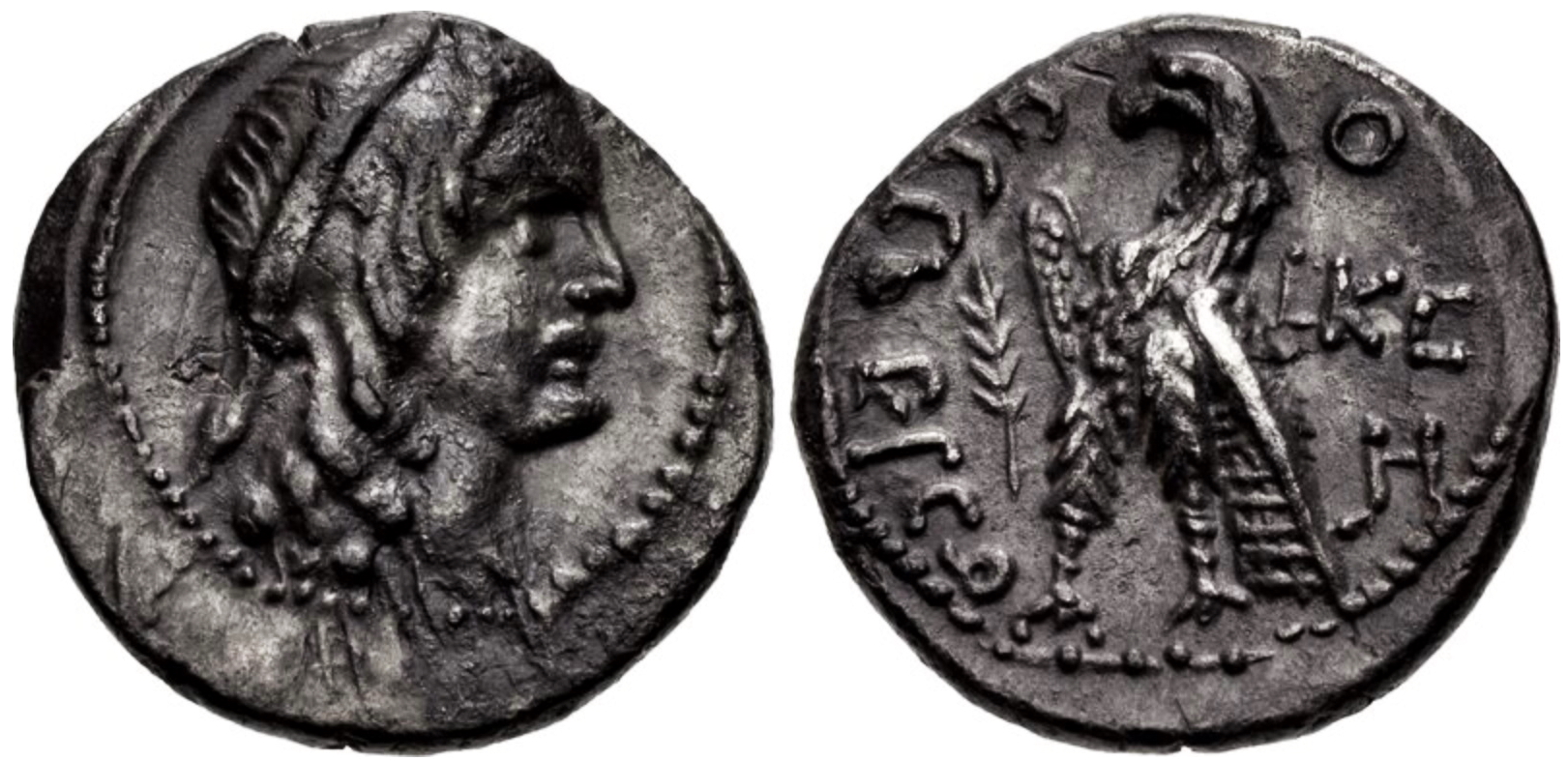Malichus I on:
[Wikipedia]
[Google]
[Amazon]
 Malichus I or Malchos I (
Malichus I or Malchos I (
 Malichus I or Malchos I (
Malichus I or Malchos I (Nabataean Aramaic
Nabataean Aramaic is the Aramaic variety used in inscriptions by the Nabataeans of the East Bank of the Jordan River, the Negev, and the Sinai Peninsula. Compared to other varieties of Aramaic, it is notable for the occurrence of a number of loa ...
: ''Malīḵū'' or
''Malīḵūʾ'') was a king of Nabataea who reigned from 59 to 30 BC.
Malichus was a possible cousin of Herod the Great
Herod I (; ; grc-gre, ; c. 72 – 4 or 1 BCE), also known as Herod the Great, was a Roman Jewish client king of Judea, referred to as the Herodian kingdom. He is known for his colossal building projects throughout Judea, including his renova ...
of the Herodian kingdom
The Herodian Kingdom of Judea was a client state of the Roman Republic from 37 BCE, when Herod the Great, who had been appointed "King of the Jews" by the Roman Senate in 40/39 BCE, took actual control over the country. When Herod died in 4 BCE, ...
. When Herod fled Judea
Judea or Judaea ( or ; from he, יהודה, Standard ''Yəhūda'', Tiberian ''Yehūḏā''; el, Ἰουδαία, ; la, Iūdaea) is an ancient, historic, Biblical Hebrew, contemporaneous Latin, and the modern-day name of the mountainous sou ...
in 40 BC to escape imprisonment by the Hasmonean ruler Antigonus II Mattathias
Antigonus II Mattathias ( grc-gre, Αντίγονος ''Antígonos''; he, , ''Matīṯyāhū''), also known as Antigonus the Hasmonean (died 37 BCE) was the last Hasmonean king of Judea. A puppet king installed by the Parthians, he was the son ...
, who had already imprisoned his brother Phasael Phasael (died 40 BC; , ''Faṣā'ēl''; Latin: Phasaelus; from , ''Phasaelos''), was a prince from the Herodian Dynasty of Judea.
Origins and early career
Phasael was born in the Hasmonean Kingdom to an aristocratic family of Edomite descent. His f ...
, he first traveled to the court of Malichus. However, Malichus I turned Herod away, as the Nabataean king was politically aligned with the Parthian Empire
The Parthian Empire (), also known as the Arsacid Empire (), was a major Iranian political and cultural power in ancient Iran from 247 BC to 224 AD. Its latter name comes from its founder, Arsaces I, who led the Parni tribe in conque ...
, which viewed Herod as a client ruler
A client state, in international relations, is a state that is economically, politically, and/or militarily subordinate to another more powerful state (called the "controlling state"). A client state may variously be described as satellite state, ...
of the rival Roman Republic
The Roman Republic ( la, Res publica Romana ) was a form of government of Rome and the era of the classical Roman civilization when it was run through public representation of the Roman people. Beginning with the overthrow of the Roman Ki ...
. Herod then decided to take refuge instead in Alexandria
Alexandria ( or ; ar, ٱلْإِسْكَنْدَرِيَّةُ ; grc-gre, Αλεξάνδρεια, Alexándria) is the second largest city in Egypt, and the largest city on the Mediterranean coast. Founded in by Alexander the Great, Alexandri ...
, at the court of Cleopatra VII
Cleopatra VII Philopator ( grc-gre, Κλεοπάτρα Φιλοπάτωρ}, "Cleopatra the father-beloved"; 69 BC10 August 30 BC) was Queen of the Ptolemaic Kingdom of Egypt from 51 to 30 BC, and its last active ruler.She was also a ...
of Ptolemaic Egypt.
Malichus I eventually came into conflict with Cleopatra VII after her lover and Roman triumvir Mark Antony
Marcus Antonius (14 January 1 August 30 BC), commonly known in English as Mark Antony, was a Roman politician and general who played a critical role in the transformation of the Roman Republic from a constitutional republic into the au ...
granted her Nabataean territories in the Gulf of Aqaba
The Gulf of Aqaba ( ar, خَلِيجُ ٱلْعَقَبَةِ, Khalīj al-ʿAqabah) or Gulf of Eilat ( he, מפרץ אילת, Mifrátz Eilát) is a large gulf at the northern tip of the Red Sea, east of the Sinai Peninsula and west of the Arabian ...
along the Red Sea
The Red Sea ( ar, البحر الأحمر - بحر القلزم, translit=Modern: al-Baḥr al-ʾAḥmar, Medieval: Baḥr al-Qulzum; or ; Coptic: ⲫⲓⲟⲙ ⲛ̀ϩⲁϩ ''Phiom Enhah'' or ⲫⲓⲟⲙ ⲛ̀ϣⲁⲣⲓ ''Phiom ǹšari''; ...
, which had long been used as a staging ground for Nabataean raids on Ptolemaic lands. After a bitter open conflict between Malichus I and Cleopatra, allegedly stoked by her aggressive acts, Malichus I, along with Herod, failed to show up and support Antony and Cleopatra during the fateful Battle of Actium
The Battle of Actium was a naval battle fought between a maritime fleet of Octavian led by Marcus Agrippa and the combined fleets of both Mark Antony and Cleopatra VII Philopator. The battle took place on 2 September 31 BC in the Ionian Sea, ...
in 31 BC, a decisive victory for their rival Octavian
Caesar Augustus (born Gaius Octavius; 23 September 63 BC – 19 August AD 14), also known as Octavian, was the first Roman emperor; he reigned from 27 BC until his death in AD 14. He is known for being the founder of the Roman Pr ...
.
See also
*List of rulers of Nabatea
The Rulers of Nabataea, reigned over the Nabataean Kingdom (also rendered as ''Nabataea'', ''Nabatea'', or ''Nabathea''), inhabited by the Nabateans, located in present-day Jordan, southern Syria, southern Israel and north-western Saudi Arabia.
Th ...
*Malichus II
Malichus II (Nabataean Aramaic: ''Malīḵū'' or ''Malīḵūʾ'') was ruler of Nabatea from 40 to 70 AD.
Malichus' reign is sometimes perceived as a period of declining Nabataean power, but this view depends in part on Nabataea having contro ...
Notes
References
* 1st-century BC Nabataean monarchs 1st-century BC Arabs Roman client rulers 30 BC deaths {{MEast-hist-stub